
9 minute read
Prepping for the new growing season • Kennay Farms Distilling uses own crops
by Shaw Media
Corn and soybean yields suffered from moisture in 2019
Story by Pam Eggemeier For North Cen tral Illin ois Ag Mag
Farmers have barely had time to catch their breath from a year of record-setting wet weather that delayed planting and harvests, causing many to take a loss on cash crops, but it’s time to plan for a new planting season.
The first half of 2019 was the wettest in Illinois history, pushing back the timeline on planting the state’s most important crops — corn and soybeans. Harvest season dragged into the new year in some areas and now the toll it took can be quantified.
Corn production was down 18 percent, and soybeans were down 20 percent, according to the final yield data from the U.S. Department of Agriculture.
Continued on page 6
Alex T. Paschal/For North Central Illinois Ag Mag Mechanics Kourtney Ranken and Josh Armbruster look over the transmission of a John Deere tractor at Holland and Sons in Dixon. This is the time of year when farmers are focused on equipment maintenance, and there’s been a lot of demand for it. Last year’s wet crops took a toll on farm machines, especially combines.
Farm Management - Consulting Real Estate Brokerage Farmland Auctions

ServingToday’s Farmers forOver57Years! WE DELIVER: • PROPANE • MOTOR OILS • FUELS
TimothyA.Harris,AFM ManagingBroker, ILLic.Auctioneer#441.001976,Princeton,IL 815-875-7418 timothy.a.harris@pgim.com CallmeonhowIcanassistwithyouragriculturalneeds

Manlius Oil Co. Inc.
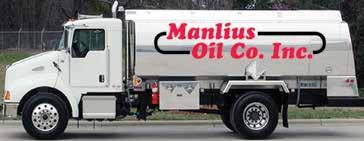
BENEFICIAL AG CENTER 636 South Main Street Princeton 855-341-3090 OpeningMarch 2020 Gr and Opening Announc ed Soon!










Seven AgRelatedBusinesses WorkingTogetherforYou:
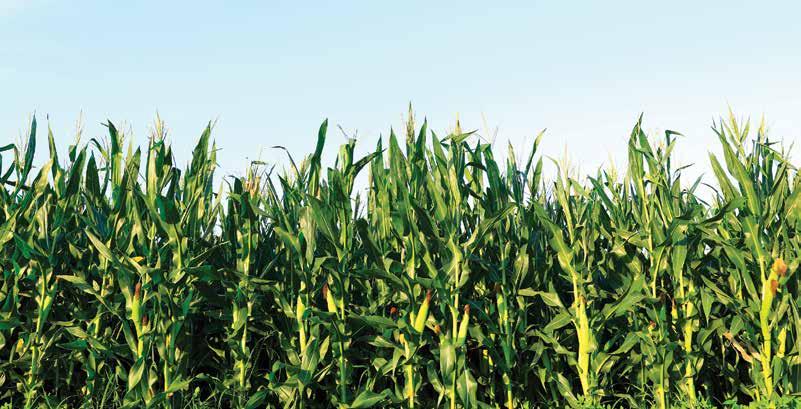
Ag Consulting Group • Cyr Financial • Land Guys • Indigo Ag • AgXplore • Integra Fortified Seed • Thorn Creek Insurance Services






To make matters worse, as farmers start to plan for planting, the prognosticators are advising they prepare for another wet spring.
Rainfall estimates from the National Oceanic and Atmospheric Administration are calling for more rain than usual from April through June, the period in which most of the corn and soybean planting is done.
Some farmers are tuned in and considering different approaches that could help protect crops against more wet conditions. One option is to put in alternative crops to help mitigate risk.
Ryan Appelquist grows corn and soybeans on 3,000 acres between Nachusa and Franklin Grove. Last year he grew hemp for CBD oil, and this year he plans to bring hemp seed into the mix.
“Hemp is just a shorter-season crop,” Appelquist said. “We’re trying to diversify with crops that allow us to get in and out earlier, and we didn’t need any new equipment to produce it.”
Appelquist managed to get all of his acreage planted during last year’s weather nightmare, but he learned some hard lessons along the way, especially with corn.
“Once June 1 hits, you just have to be


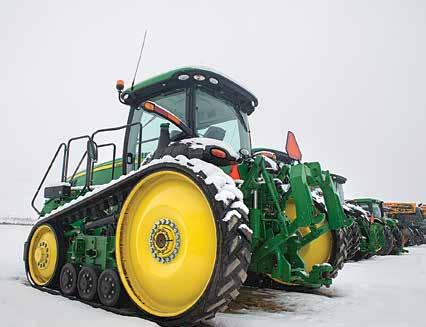
Some farmers who don’t want to get bogged down in fields saturated in rain are turning to track tractors. Trading treads for tracks helps the machines maneuver better in soft soil.
Alex T. Paschal/ For North Central Illinois Ag Mag
done with corn,” Appelquist said. “Anything done after was so wet it cost us more than if we’d taken prevented plant.” Prevented planting is a provision in crop insurance that will cover part of the loss from natural causes that keep farmers from the same area from planting by a certain date. While government aid programs and insurance took some of the sting off a tough year, farmers are still staring at input costs for the next season regardless of how much they end up raising.
This year many farmers say they will be more decisive about when to plant.
“If the ground is fit enough, get it in,” Appelquist said. “I kept thinking the weather would get better, and it never did.”
Continued on page 7
POINTER CHIROPRACTIC
LOCAL EXPERTISE GLOBAL REACH

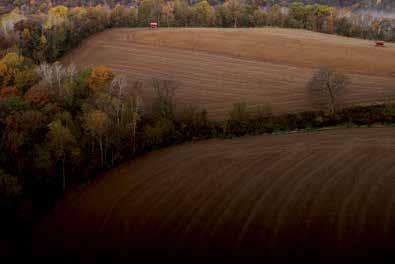
WEAREA FULL-TIMEREAL ESTATE BROKERAGETHATDEALSPRIMARILY INLAND& RURAL PROPERTIES We are an elite group of real estate professionals with backgrounds in wildlife biology, farming, farm management, outfitting, education, photography, and land management.
CONTACTUSTODAY! Nathan Cumpton 815.878.6780 Don Wagner 309.335.2894
VISITUSATLANDGUYS.NET
Dr. Pointer can fix his tractors when they break down on his farm, AND Dr. Pointer can fix your back and neck pain when you are broke down. CALL POINTER CHIROPRACTIC FOR FAST PAIN RELIEF FOR ALL OF YOUR ACHES AND PAINS. 309/852-6514 to schedule an appointment 627 E. 2nd Street Kewanee, IL 61443


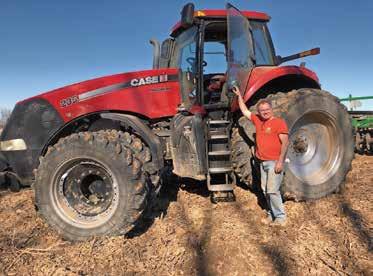
Appelquist also decided to go with earlier corn hybrids so he can get the combine in the fields sooner. Farmers can start booking seed orders in November. Better prices are usually available to those who order early.
This is the time of year when farmers are focused on equipment maintenance, and the wet crops took a toll on combines. Appelquist has made good use of no-till and cover crops. They lock moisture in the ground and help keep erosion in check.
While he is willing to make concessions to Mother Nature, Appelquist doesn’t want to stray too far from his triedand-true practices.
An Illinois crop specialist agrees that resisting the urge to completely overhaul planting plans is wise. Corn and soybeans are the cash crops and farmers should use caution when considering diversification.
“I’ve been hearing about alternative crops for 40 years, but we’ll always go where the demand is — people want corn and soybeans,” said Emerson Nafziger, professor emeritus at the University of Illinois. “Your memory needs to be be longer than one year when you’re thinking about spending more money.”
Nafziger stresses that the production was still decent given the weather challenges. The state average yield for corn was 181 bushels per acres — only 10 bushels below the trend line.
As for the forecasts for more wet weather, Nafziger isn’t overly concerned yet because at this point they are only educated guesses. History also tells us that advances in seed science can make up for a lot of weather problems.
“With the current hybrids available, loss in yield is less than it used to be,” Nafziger said. “Maybe the biggest lesson from last year is that we don’t have to give up on crops as early as we used to.”
Nafziger stressed that he doesn’t want to paint an overly rosy picture for the upcoming growing season. There are some things he would make a priority and consider tweaking. Planting as quickly as possible is key, and that means getting corn in before May. Second plantings in June probably aren’t a good idea.
Last year’s wet spring and fall should be factored into this year’s plans for some farmers in Northwestern Illinois, Nafziger said.
“Not much tillage was done, and pricewise, corn might be favored in that area,” he said. “There is little nitrogen on the land, so that needs to be done in a timely fashion in the spring. If it’s a month late, there will be loss of yield.” Going to earlier-maturing hybrids should also yield well and produce drier crops at harvest time.
“Seed companies are moving to produce earlier-maturing crops and I believe the 105 to 108 hybrids will be in demand this year,” Nafziger said.
As farmers do equipment maintenance, some are looking at changing it up a bit to better deal with the wet conditions. But after a long stretch of low commodities prices, the risk-reward of new purchases must be carefully weighed.
Holland & Sons in Dixon has seen quite a few farmers who are interested in new equipment. Much of that interest is driven by a desire to better navigate wet-weather conditions.
“A few guys are buying new high-speed planters so they can get more done quicker,” said Mike Cain, service manager at Holland & Sons.
Tract machines are another popular item for soggy fields. “If it’s wet, it’s better than a wheel tractor because it floats over softer soil better, but they’re a pretty big investment,” Cain said.
Many farmers are already looking at higher costs for fixing what they already own, thanks to the difficult conditions they performed in last year.
“We’re working on tractors and combines now and last year’s weather was really hard on equipment, so the repair bills can definitely be higher this time around,” Cain said.
Reliability comes in all sizes.

Rugged versatility is what makes Kubota tractors the perfect choice for getting every job done right. And now the payment plan is as efficient as the machines. Get $0 down, 0% A.P.R. financing for 60 months. Visit us today.
BX Series
B Series
L Series MX Series
$ 0 DOWN 0 % APR 60 MONTHS
KubotaUSA.com © KubotaTractor Corporation, 2020. $0 Down, 0% A.P.R. fi nancing for up to 60 months on purchases of select new Kubota BX Series, B Series, L Series, and MX Series equipment from participating dealers’ in-stock inventory is available to qualifi ed purchasers through Kubota Credit Corporation, U.S.A.; subject to credit approval. Some exceptions apply. Example: 60 monthly payments of $16.67 per $1,000 fi nanced. Offer expires 2/29/20. Terms subject to change. For complete warranty, safety and product information see dealer or KubotaUSA.com. Streator Farm Mart 1684 N 17th Rd Streator, Il 61364 (815) 672-0007
kubota.com








